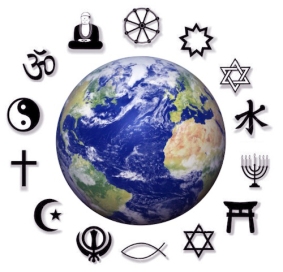Among religions still being widely practiced today, Buddhism is one of the oldest. It is one of the most popular polytheistic religions, with hundreds of millions of followers worldwide. The largest concentration of Buddhists are in Asia, especially in China.
Where did the religion come from?
An Indian prince named Siddhartha Gautama, who lived around the 6th century BCE in present-day Nepal, experienced suffering in the world for the first time at age 29. At 35, he realized the path to happiness (nirvana) after meditation under the Tree of Wisdom. His teachings formed the basis for the religion that is practiced today.
Where did I come from?
Buddhism does not place an emphasis on an absolute truth explaining the origins of man. Different buddhas have different explanations for where we come from. Instead of emphasizing the pursuit of absolute knowledge, Buddhism emphasizes a liberation from suffering.
Why do human beings suffer and die?
Buddhism centers on exploring the truth of suffering and happiness. According to the Four Noble Truths, suffering is caused by desire. Adherents of Buddhism seek a moderation between complete asceticism and total extravagance. They see death as a natural part of the cycle of rebirth (samsara), and an opportunity for release from suffering.
What does it mean to be perfect, to reach a spiritual ideal?
Perfection is the release from the cycle of rebirth, the ultimate goal of Buddhism. Buddhists seek enlightenment, or perfect knowing. They strive for a state of total liberation, truth, tranquility, and peace. This is accomplished upon a moment of supreme realization and enlightenment, when one understands the truths of life and is freed from ignorance. This state is referred to as nirvana.
How do I live my life?
Followers of Buddhism are expected to adhere to the Four Noble Truths and the Eight-fold Path. These guidelines originally formed by the original buddha are the primary ways of life for Buddhists. Right behavior will lead to an eventual end to suffering, and a release from the cycle of rebirth.
What is salvation?
Salvation is reaching nirvana, when one finds ultimate enlightenment and understanding. Suffering and desire are ended upon reaching salvation or nirvana. Salvation in Buddhism is not necessarily done by a savior, but rather comes from within one’s self.
What is my purpose or destiny?
The primary goal for Buddhists is understanding – an understanding of self and the world. This understanding is achieved when one reaches enlightenment and nirvana. This can take a life of work to achieve, needing teaching from buddhas and those who are on the path to enlightenment.
What is the nature of the world around us?
According to the Four Noble Truths, all humanity is suffering. The world is filled with desire, which causes the suffering we see all around us. Realizing this is key to following the way of enlightenment, and only until one recognizes desire as the root cause of suffering can one seek to end suffering.
What is ultimate reality and how is it revealed?
Reality, or dharma, is only revealed when one reaches enlightenment. One must strive to have a full understanding of reality in order to end suffering. Ultimate reality is the world as it is – it is suffering caused by desire. There are many gods according to some, while other schools of thought argue there is one supreme deity. Ultimate reality is almost subjective and is different from many other religions.

